The Ode to the Goddess of the Luo River is an ancient Chinese poem created by Cao Zhi, a writer living in the state of Wei during the Three Kingdoms period (c. 220-280 CE). In his tale, Cao Zhi is returning from the capital to his own land when he stops at the Luo River for a rest, where he sees a vision of the goddess so powerful that he instantly falls in love with her. Cao sees a nymph of peerless beauty “as elegant as a startled swan and supple as a swimming dragon”. Though he’s swept away by her ethereal beauty, it’s a love that isn’t meant to be. With its high production values and amazingly-detailed-multi-page foldout spreads, this is a special book that will entice art lovers of all ages.
Poetry
Poetry genre
A Suitcase Of Seaweed And More
In A Suitcase of Seaweed, an NYPL Best Book for the Teen Age originally published in 1996, Janet Wong explored issues of identity in sections defined as Korean Poems, Chinese Poems, and American Poems. In this new book, A SUITCASE OF SEAWEED & MORE, readers will find the original text plus new reflections, insights, and writing prompts accompanying each poem.
Featured in WOW Review Volume XIII, Issue 1
Ink Knows No Borders
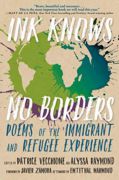
“With authenticity, integrity, and insight, this collection of poems addresses the many issues confronting first- and second- generation young adult immigrants and refugees, such as cultural and language differences, homesickness, social exclusion, human rights, racism, stereotyping, and questions of identity. Poems by Elizabeth Acevedo, Erika L. Sanchez, Samira Ahmed, Chen Chen, Ocean Vuong, Fatimah Asghar, Carlos Andres Gomez, Bao Phi, Kaveh Akbar, Hala Alyan, and Ada Limon, among others, encourage readers to honor their roots as well as explore new paths, offering empathy and hope for those who are struggling to overcome discrimination. Many of the struggles immigrant and refugee teens face head-on are also experienced by young people everywhere as they contend with isolation, self-doubt, confusion, and emotional dislocation. Ink Knows No Borders is the first book of its kind and features 65 poems and a foreword by poet Javier Zamora, who crossed the border, unaccompanied, at the age of nine, and an afterword by Emtithal Mahmoud, World Poetry Slam Champion and Honorary Goodwill Ambassador for UNHCR, the UN Refugee Agency. Brief biographies of the poets are included, as well. It’s a hopeful, beautiful, and meaningful book for any reader”–
A Story About Afiya
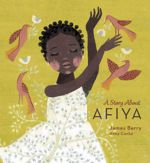
Some people have dresses for every occasion but Afiya needs only one. Her dress records the memories of her childhood, from roses in bloom to pigeons in flight, from tigers at the zoo to October leaves falling. A joyful celebration of a young girl’s childhood, written by the late Coretta Scott King Book Award-winning Jamaican poet James Berry.
Jimena Perez Puede Volar
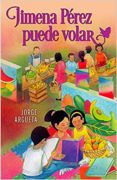
Ten-year-old Jimena loves El Salvador but when gangs threaten to force her to join, she and her mother immigrate to the United States, but are separated at the border.
Fuego, Fueguito
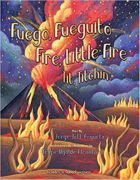
Describes–in Spanish, English, and Nahuat–the characteristics of fire from the perspective of one little spark.
Under the Broken Sky
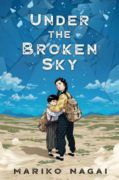
When Soviet troops invade Japanese-occupied Manchuria during the last days of World War II, 12-year-old Natsu Kimura must care for her younger sister as they struggle to survive and return to Japan.
Under the Broken Sky is a WOW Recommends: Book of the Month for April 2020.
Dreams From Many Rivers
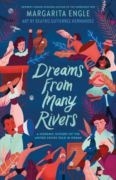
A middle grade verse history of Latinos in the United States, told through the voices of many and varied individuals ranging from Juan Ponce de Leon to modern-day sixth graders.
Other Words for Home
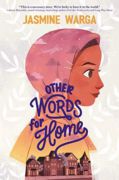
Sent with her mother to the safety of a relative’s home in Cincinnati when her Syrian hometown is overshadowed by violence, Jude worries for the family members who were left behind as she adjusts to a new life with unexpected surprises.
Other Words for Home has been discussed in My Take/Your Take in April 2020 and July 2020.
This book has been included in WOW’s Language and Learning: Children’s and Young Adult Fiction Booklist. For our current list, visit our Booklist page under Resources in the green navigation bar.
The Lost Words
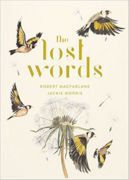
In 2007, when a new edition of the Oxford Junior Dictionary ― widely used in schools around the world ― was published, a sharp-eyed reader soon noticed that around forty common words concerning nature had been dropped. Apparently they were no longer being used enough by children to merit their place in the dictionary. The list of these “lost words” included acorn, adder, bluebell, dandelion, fern, heron, kingfisher, newt, otter, and willow. Among the words taking their place were attachment, blog, broadband, bullet-point, cut-and-paste, and voice-mail. The news of these substitutions ― the outdoor and natural being displaced by the indoor and virtual ― became seen by many as a powerful sign of the growing gulf between childhood and the natural world.
